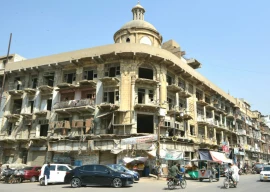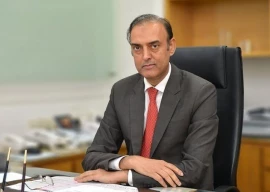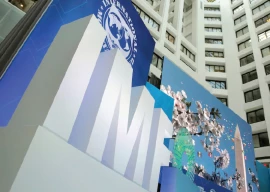
Most importantly these remedial measures must precede the delivery of the package otherwise it is just more lambs for the slaughter.
To avoid taxpayer money being embezzled, the management structure needs to be changed and strict regulatory controls need to be incorporated. A foolproof system has to be put in place to monitor expenditure, ensure transparency in future sales and probe into the credentials of the top management, to justify the bail out.
There have been huge bailout packages for AIG in USA and many banks in other developing countries. ENRON failed to qualify for such a bailout because of flagrant irregularities. However its former CEO and COO Jeffery Skilling was convicted on 19 out of 28 counts, of securities fraud and wire fraud. He was sentenced to 24 years and 4 months in prison and in addition had to pay $630 million to Fed Government, which included $180 million in fines.
Kenneth Lay the former Chairman and CEO faced a total sentence of 45 years in prison. It was established that ENRON collapsed because a lot of people broke a lot of rules. During his testimony Ken Lay stated” Rules are important, but they should not--you should not be a slave to the rules either”.
Strict regulations have to be put in place, by appointing the best qualified executives on merit, with impeccable record of integrity, who have no controversial history and are acceptable across the political divide.
If the CEOs and vendors are responsible for the corruption currently plaguing PSM, then It is the federal government’s responsibility to prosecute them, recover the funds that they have pilfered and punish them, so that it serves as a deterrent.
The case being pursued against the former chairman PSM relates to irregularities in the award of Rs80 million canteen contract; which is just a smoke screen to cover the heist by Abbas Steel Group (ASG), which led to losses worth Rs22 billion.
Pakistan Steel Mills had earned a profit of Rs2.4 billion in-2007-2008, but suffered a mind boggling loss of over Rs22 billion in 2008-2009. This loss is being conveniently shifted to “global crunch, so as to secure a clean chit on one hand and justify approval of Rs8 billion loans from National Bank and a running facility of Rs2 billion announced by the PM. Moeen Aftab was appointed as Chairman of PSM by the present government in May 2008 to “achieve optimum level of production and making Pakistan Steel cost effective”. What he did was to extend to Abbas Steel Group exclusive rights to all the production coming out of the factory at reduced and discounted prices. PSM is the largest and only large scale blast furnace in the country having a monopoly in raw materials of steel industry. The product that is at the centre of controversy is called low carbon steel billets, with a carbon deposit of 0.10 per cent or lower, and an international classification of SAE1008 and SAE1010. These billets because of their low carbon content, give the steel malleability and ductility to be shaped into wire rods that can be used to make end products such as screws, nails, buckles, fan covers and welding rods.
In June 2008, there was an unusual rise in the amount of steel allocated and set aside for ASG, which by October November 2008 it peaked to almost 100 per cent of the total produce. PSM decreased its production of high carbon steel to cater to ASG requirements, which added to its losses.
Data compiled by the Competition Commission of Pakistan verify these facts and even the Transparency International is on record to complain of these irregularities. Pakistan Steel Re Rolling Mills Association also objected to these irregularities. Drastic reduction in prices of billets were made from Rs63,000 per ton to Rs41,000 per ton.
Instead of making amends, PSM sold its entire stock of 4,500 tons to ASG on the night of 9-10 Feb at below cost price resulting in an enormous loss of Rs34,000 per ton to the mill. Numerous reports confirmed suggested that Abbas Steel Group was given ordinary extra procedural advantages, and an example quoted in the investigative period is of November 2008, when a tender contract was awarded to Abbas Steel Group for 4,000 M/Tons of Billets valuing at over Rs 194 million, which included an extra ordinary interest-free credit facility of Rs 76 million for 90 days on November 25, 2008, even before the ASG completed any proper registration procedures.
Other than that, the Steel Mill did not await the proper clearance of the security deposits submitted by ASG on November 27; their checks were cleared on the December 3, 2008. The steel was shipped out of the factory floor on the 26th of November. Complicating this uncharacteristic “interest-free” policy was the fact that the prices of steel products was also reduced by over 35 per cent of the market price on November 26, 2008 and 100 per cent of the Pakistan Steel production was handed over to Abbas Steel Group, surely such favouritism helped the group make millions overnight.
The scarcity of low-carbon steel in the market being hoarded by a select group of traders had the on-demand price fluctuating anywhere from Rs5,000 ‘on’ to even a reported premium of around Rs100,000 over and above the market price.
This was an advantage that Abbas Steel exploited to make millions.
This is taxpayer money that the PM has put at the disposal of almost the same management, the same vendors and privileged contractors, who were responsible for the robbery in the first instance.
Published in The Express Tribune, July 12th, 2010.


1732085354-0/insta-(1)1732085354-0-165x106.webp)

1725366721-0/kyle-(1)1725366721-0-165x106.webp)
1732084432-0/Untitled-design-(63)1732084432-0-270x192.webp)











COMMENTS (3)
Comments are moderated and generally will be posted if they are on-topic and not abusive.
For more information, please see our Comments FAQ